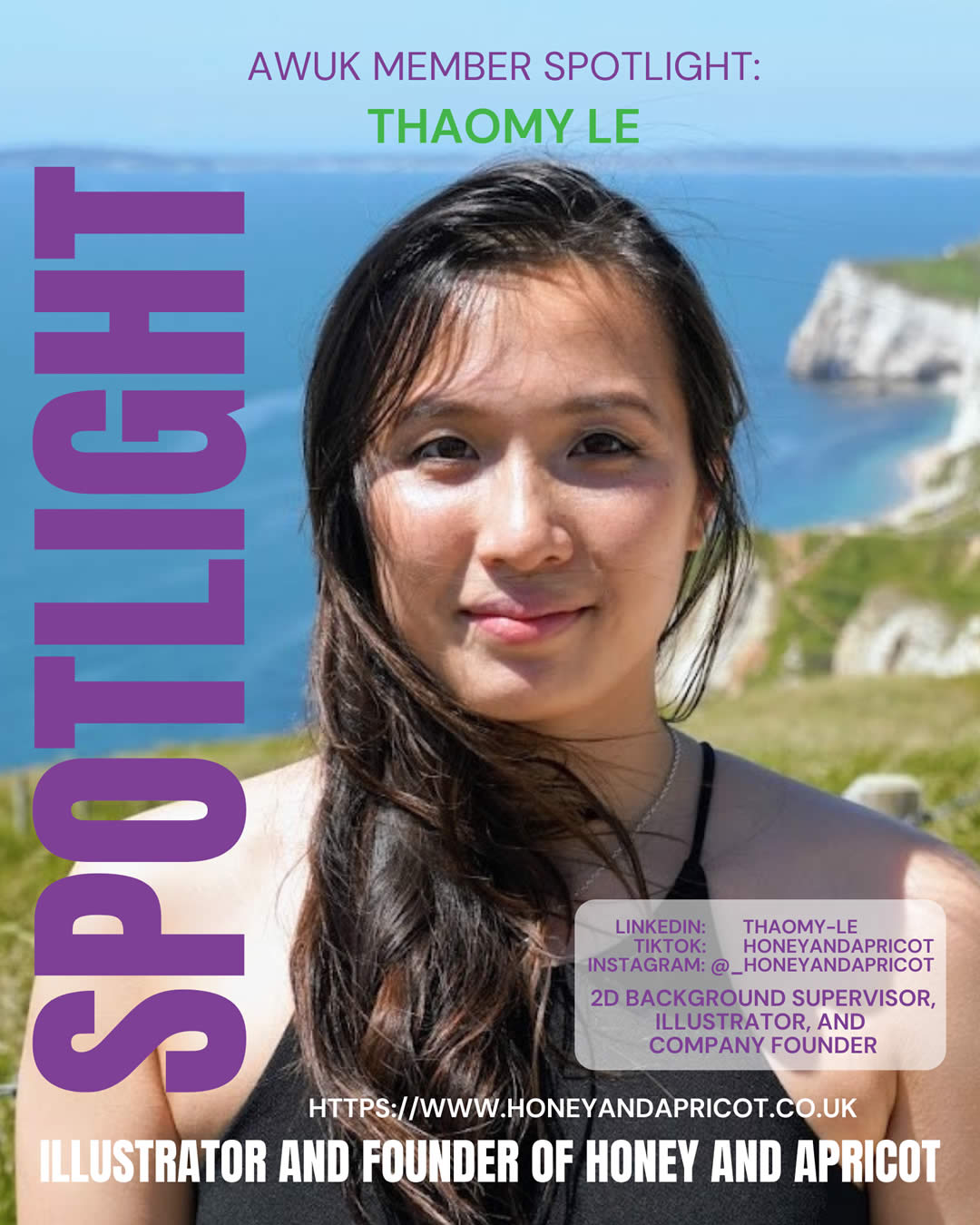
Spotlight: Thaomy Le
What's your name and what area of VFX or animation do you work in?:
Thaomy Le - Supervisor Background artist in 2D animation TV series for Animation Studio Iceland, Dandeloo, Sun&Moon, Dog Ears and Cartoon Saloon.
What was your journey into the VFX or animation industry? What got you into VFX or animation?:
I originally was a fine artist and all I did was draw throughout majority of my childhood. I got into a lot of trouble for drawing in Maths, Science and English.
My parents thought I was a hopeless child. I remembered stumbling onto Cartoon Network, Disney TV and Nickelodeon - I was intrigued with animation in general and it became nostalgic watching on the small box TV.
Mainly Studio Ghibli opened up my heart to fully pursuing animation because of how stunning the visuals and overall aesthetic.
I went to Bournemouth University to study Computer animation and disliked the course. It was very technical and a lot of the programmes they were using were very outdated. I graduated in 2019 unsatisfied until COVID happened and studied IDEA academy remotely to build a portfolio. I remember it was Annecy's first ever remote festival and I landed an interview. It was a TV show for Cartoon Saloon and I was excited to work on my first ever project. Ever since then I was very fortunate enough to land on more projects and worked with amazing talented people in the industry.
What does a typical day look like in your role?:
A typical day would be to have lots of coffee to give me fuel and then crack on to the task.
I would usually read the briefs and reach out to the Director for additional confirmation and also get in calls with the Storyboard Supervisors and Production team to be able to translate the task to my own Background department.
What skills do you think are most important for your role?:
Communication and being able to hit tight deadlines.
That is so crucially important because the industry is very fast paced so you don't have time and you have to constantly deliver due to tight budgets and demands.
On top of that you need to always update your leads and production team for them to be able to keep schedules on track to avoid expensive delays.
What tools or software do you use daily? Is this what you started working in or have you pivoted to this one?:
I used Photoshop and the Adobe suite software to be able to produce a lot of backgrounds and drawings.
I do miss paints, pencils and sketchbooks but when you're in the industry you have to learn to adapt like a chameleon and use new programmes.
Recently I had to pick up Toonboom and TV paint for different TV shows for the company to work efficiently.
What's your favourite part of your job/career so far?:
My favourite part of my job/career is meeting so many talented artists and hearing their backstory.
I made a lot of incredible friends and we all came from similar backgrounds that makes me connect easily in the industry. It's funny because every event that is associated with animation that I go to, I always bump into people I used to work with or knew from other friends/colleagues.
The best part is you get to see how they progressed and what they have been up to. It is a very small world.
What's a common misconception about your job?:
I always had people fascinated about my job but they always assume that I draw hand by hand and all animation is just cartoons.
Now we have a range - Stop motion, CG, VFX, 2D, Anime and mix media. There is more but animation is always constantly evolving.
What challenges have you met as a woman in the industry?:
The challenges I tend to experience is that the industry can be very male dominated and a lack of representation as an ethnic minority.
I don't see a lot of South East Asian being represented enough in animation overall and would hopefully one day change that.
What's one piece of advice you wish you'd received earlier?:
The one piece of advice I would give would be to have a lot of savings and be ready for short contracts.
The industry has its ups and downs - it's so important to cover rent and protect yourself when you jump on to the next project.
How do you balance work with your personal life?:
I usually book events that I like such as theatre and orchestra to be able to go outside and enjoy my personal life. I tend to also reach out to my friends to talk about our lives and what is happening. I believe that life is too short to drown yourself with too much work and you need to be able to also make memories with people you care about.
By the time it hits 5pm, I am clocking out and living!
What's one stereotype you'd love to break about your field?:
That my job is a hobby and I’m a starving artist. I hate that we are not being taken seriously and would like to break the stereotype to open the gateway that it is possible to get in the industry. There is hope.

